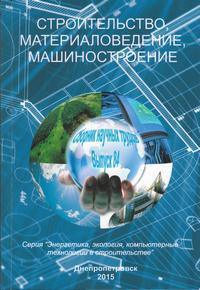The influence of environmental parameters on the efficiency of refrigeration systems
Keywords:
Refrigeration system, heat exchange, evaporator, compressor, pump, chilled water temperature, exergy, exergy analysis.Abstract
Purpose. The aim of this work is the reduction of overall energy requirements of refrigeration and refrigerating plants by optimizing these settings.
Methodology. To achieve this goal the proposed use of the known physiological dependency with the use of modern technology regulation. As parameters must be set: temperature of evaporation and condensation refrigerating machines; power consumption compressor chillers as a function of condensing temperature and download installation; changes in the performance of the evaporative cooler on heat transfer depending on the enthalpy of the air; the power consumption of pumps and fans; download installation; operational limits of the plant; the mutual influence of the above parameters.
Findings. During the study of various energy conversion processes there is a need to evaluate the thermodynamic efficiency of the processes and the sources of loss in them. To do this, use termodinamicheski method – exergetically. Presents the results of the exergy studies for refrigerating machines with different condensing temperatures.
Originality. Optimal scheme in regulation needs to consider these dependencies in order to minimize the power consumption of all the drives of compressors, pumps and fans. However, it is necessary to take operational limits of the various components of the installation.
Practical value. Using computers is calculated the energy optimum. Thus, it is possible, depending on download install for variable temperature, to determine the optimal temperature of the cooling water. Then, when it can be applied to minimize the overall power drives for compressors, water pumps and tower fans chillers. This optimization is implemented in a closed loop through the use of the regulatory system from the computing machine.
References
Bretting, H. L. Refrigeration system optimized. G. : operation and Enrgie, 1/83, 1983. – pp. 75-76.
Andrew Burkhart. Seven methods to increase the efficiency of the cooling units. American society of engineers for heating, cooling and air conditioning (ASHRAE) Energosbyt. – 2013. –№ 4 (29). – pp. 48-53. http://www.energosovet.ru/bul_stat.php?num=29
W. Reif. Exergetische investigations on cold-vapour refrigeration systems / W. Reif. – G.: Issue 4, Received, November 1974. – pp. 111-114.
Downloads
Published
Issue
Section
License
Редакція Видання категорично засуджує прояви плагіату в статтях та вживає всіх можливих заходів для його недопущення. Плагіат розглядається як форма порушення авторських прав і наукової етики.
При виявлені у статті більш ніж 25% запозиченого тексту без відповідних посилань та використання лапок, стаття кваліфікується як така, що містить плагіат. У цьому випадку стаття більше не розглядається редакцією, а автор отримує перше попередження.
Автори, в статтях яких повторно виявлено плагіат, не зможуть публікуватися в усіх журналах Видавництва ДВНЗ «Придніпровська державна академія будівництва та архітектури».
Автори, які публікуються у цьому журналі, погоджуються з наступними умовами:
- Автори залишають за собою право на авторство своєї роботи та передають журналу право першої публікації цієї роботи на умовах ліцензії Creative Commons Attribution License, котра дозволяє іншим особам вільно розповсюджувати опубліковану роботу з обов'язковим посиланням на авторів оригінальної роботи та першу публікацію роботи у цьому журналі.
- Автори мають право укладати самостійні додаткові угоди щодо неексклюзивного розповсюдження роботи у тому вигляді, в якому вона була опублікована цим журналом (наприклад, розміщувати роботу в електронному сховищі установи або публікувати у складі монографії), за умови збереження посилання на першу публікацію роботи у цьому журналі.
- Політика журналу дозволяє і заохочує розміщення авторами в мережі Інтернет (наприклад, у сховищах установ або на особистих веб-сайтах) рукопису роботи, як до подання цього рукопису до редакції, так і під час його редакційного опрацювання, оскільки це сприяє виникненню продуктивної наукової дискусії та позитивно позначається на оперативності та динаміці цитування опублікованої роботи (див. The Effect of Open Access).

